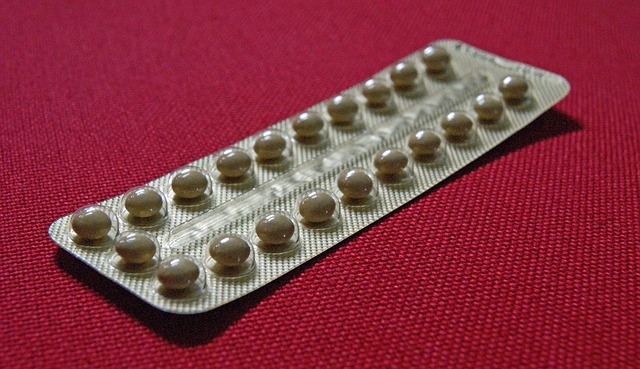Archive for July 2017
Birth Control and Depression: What to Know
Hormonal birth control is linked to a higher risk for depression in women
The first thing you may notice when starting a new birth control are little things like a regulation of your period, slight weight fluctuation and improved acne. Further down the line are mood swings which may resolve themselves after a matter of months. But some women may experience an increased risk for depression, and it is usually experienced quickly: most cases of increased depression symptoms occur within six months of starting a new birth control.
Protect your mental health by talking to your doctor
You don’t have to sacrifice your mental health in order to minimize your risk for pregnancy. There are different types of hormonal birth control available as well as options that don’t change your hormone balance at all. Keep a close eye on your mental and physical health in the six months after starting a new birth control and make sure to contact us if you feel like it is not working for you.
Heavy Menstrual Bleeding is More Common than you Think
How we help women with menorrhagia at Ahkami Medical Group
As your Passaic gynecological specialists, our office will perform a full medical exam if you suspect you may be suffering from mennorhagia. This includes a full medical history including detailed questions about your menstrual cycles. We perform tests including blood tests, endometrial biopsy, pap test and ultrasound to determine if there are abnormalities in your blood flow and possible causes. Depending on the results of these tests, further tests may be ordered if necessary. Depending on the type of condition we determine, there are many types of treatment and therapies available to you. We will be sure to discuss all your options including those involving drugs and surgery to ensure you make an informed decision regarding the direction of your care. Before all else, remember that you are not alone- this is a condition that affects one in five American women. Give our office a call to schedule an appointment today.
The Lowdown on Yeast Infections
Prevention of vaginal yeast infections
At Ahkami Medical Group, we believe in a preventative approach to health care! Therefore we have come up with this list of ways to prevent yeast infections entirely!
It is important to remember that yeast thrives in warm, moist environments. To this end, avoid:
- Douches, vaginal sprays and lotions
- Soaking in hot tubs and baths
- Spending time in wet clothes/bathing suits
Instead, try to:
- Wear loose-fitting cotton underwear
- Limit your intake of processed foods
- Consume foods that contain probiotics such as yogurt
- Always clean the genital area thoroughly
Treating a vaginal yeast infection begins by contacting your doctor
Vaginal yeast infections can be painful and particularly uncomfortable- if you believe you may have one, you should not hesitate to contact a health professional. Most yeast infections respond well and clear up entirely when treated with oral prescription medications and OTC topical antifungal creams. These are both good options that can eradicate yeast infections entirely but it is important to know which to use and how! We can help you there; to this end, give our office in Passaic a call to schedule an appointment today.
PCOS: A Little Known Condition that Affects 1 in 10 Women of Reproductive Age
Polycystic Ovary Syndrome is a hormonal disorder
PCOS is caused by abnormally high levels of male hormones known as androgens. Digging deeper we find that this hormone imbalance is linked to another imbalance in the body: excess insulin, the hormone responsible for blood sugar regulation, interacts with the ovaries and causes them to produce an excess of testosterone. The result? Myriad unpleasant symptoms including:
- Cysts
- Irregular periods
- Facial hair
- Weight gain
- Acne
- Baldness
Furthermore, many women with PCOS are at risk for developing prediabetes and diabetes.
Polycystic Ovary Syndrome: what we can do about it
Unfortunately there is no cure for PCOS-instead we focus on managing symptoms and reducing their impact on your life. To the best of our ability we use medication and manage lifestyle factors to reduce your likelihood for infertility and diabetes. Birth control pills are effective for regulating hormones and menstrual cycles, while other treatments can help with the regulation of blood glucose levels while simultaneously lowering testosterone production.
Diagnosing Polycystic Ovary Syndrome
This is not a straightforward diagnosis; instead, we perform blood tests to measure hormone levels, and work on eliminating the possibility for other conditions that are similar to PCOS. Furthermore, we will use ultrasound to scan for growths in the reproductive organs. If you are suffering from symptoms that sound similar to PCOS, it is worth calling our office and starting the conversation today. In our opinion, it is always better to have all the facts in your hands and to know that there are steps you can take to live more comfortably with your condition.
The Side-Effects of Sleep Loss Affect Women Disproportionately
Healthy sleeping for women
If you have been struggling to fall or stay asleep consistently for a long period of time, it is time to seek the advice of a medical professional. The stakes (your health) are too great to not be getting the sleep you need. At Ahkami Medical Group, we focus on determining the underlying cause of your sleeplessness and setting a course to help you get back to your natural sleep cycle. But we urge every woman to exercise the factors that are within her control including:
- Sleep environment: keep lights off, limit noise and keep your bedroom temperature cool.
- Sleep hygiene: clean sheets regularly, engage in relaxing behaviors before bed including (not-too) hot showers.
- Monitor caffeine intake throughout the day: caffeine can work in the system for up to 8 hours after ingestion.
- Establish consistency with your sleep and waking patterns.
How we help women find more quality sleep in Passaic
At our office in Passaic, we want to help you return to a normal healthy sleep cycle. Depending on what is stopping you from sleeping, there are a plethora of recommendations to be made and certain medications to consider. Don’t let sleep deprivation continue to wreak havoc in your life; instead call our office to schedule an appointment today.




